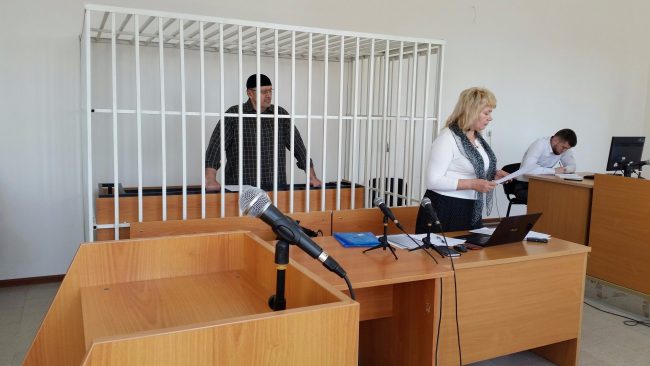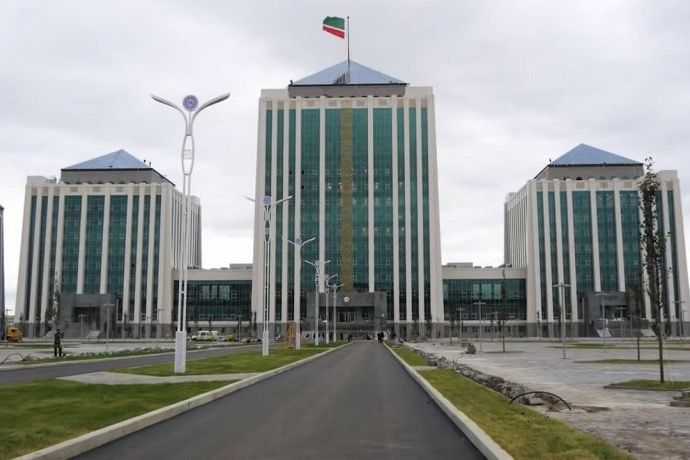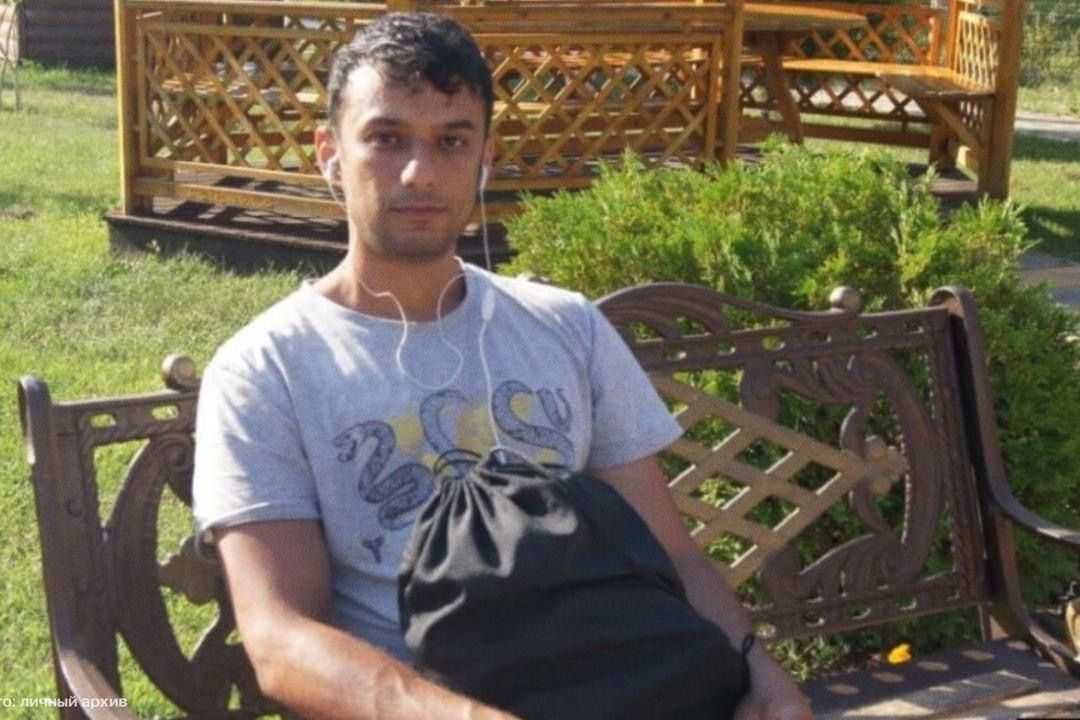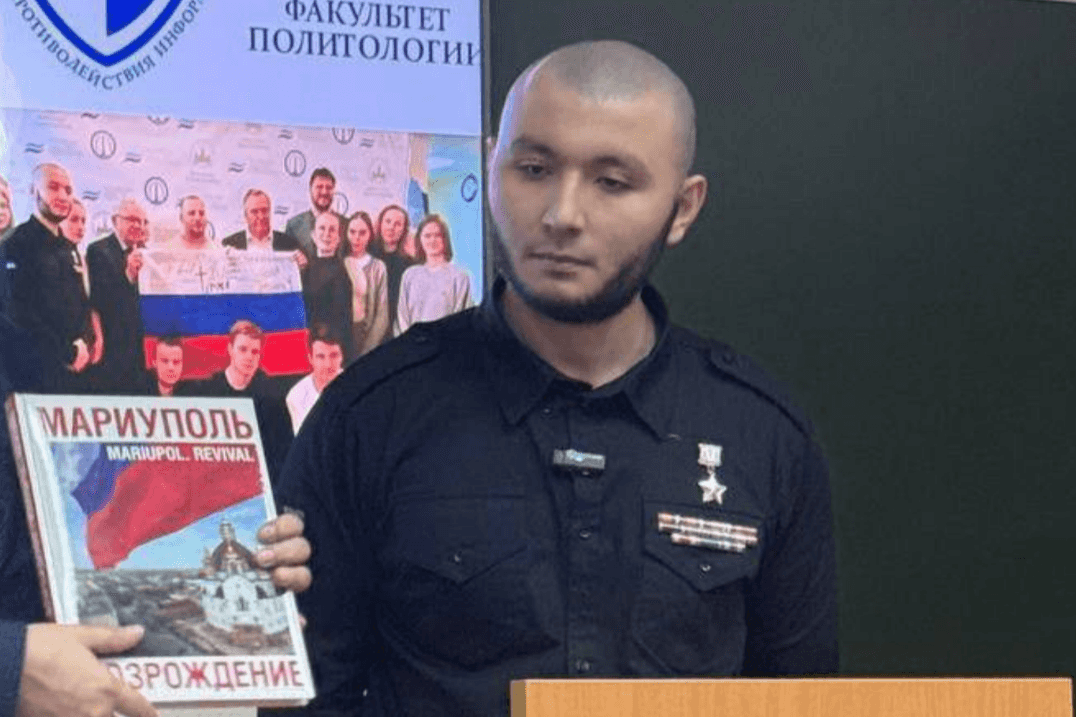

 Last week, Grozny’s Staropromyslovsky District Court rejected an appeal from Oyub Titiyev’s lawyer, Pyotr Zaikin, to have his case transferred to another region of the North Caucasus. Titiyev, the head of Russian rights group Memorial’s Chechen branch, is the latest government critic to be prosecuted on drug charges in the republic. Zaikin says the drugs were planted by police and insists Titiyev will not receive a fair trial in Chechnya, he also accused the Russian Investigative Committee of being unwilling to get to the truth of the matter.
Last week, Grozny’s Staropromyslovsky District Court rejected an appeal from Oyub Titiyev’s lawyer, Pyotr Zaikin, to have his case transferred to another region of the North Caucasus. Titiyev, the head of Russian rights group Memorial’s Chechen branch, is the latest government critic to be prosecuted on drug charges in the republic. Zaikin says the drugs were planted by police and insists Titiyev will not receive a fair trial in Chechnya, he also accused the Russian Investigative Committee of being unwilling to get to the truth of the matter.
Zaikin noted in court that during Titiyev’s detention, all CCTV cameras which should have recorded the process were turned off, allegedly due to a power surge. He believes that footage from these could dispel the charges against his client. The court disregarded his arguments that the buildings of the Federal Security Service, the Ministry of Internal Affairs, and the bank should have cameras with emergency power.
‘We drew the court’s attention to this circumstances, but the court did not reflect this in its decision’, Zaikin said. The defence plans to appeal the decision.
The courtroom is always packed during Titiyev’s hearings. Relatives, journalists, and public figures all closely follow its progress, many of them hoping the court would make the right decision. However, this has not yet happened. Titiyev himself is ready for the guilty verdict. ‘Each court decision is expected. I hope only for the Almighty,’ he told reporters.
‘Trumped-up charges’
Titiyev’s case is one of the most high-profile in recent years. It stands alongside other cases widely regarded to have been fabricated by Chechen security officials, including that of Ruslan Kutayev, a public figure and president of the Congress of the Peoples of the Caucasus; and Zhalavdi Geriyev, a journalist for Caucasian Knot. Both were arrested on drug charges and both given years-long prison sentences. Human rights organisations recognise all three as political prisoners.
After four years in prison, Kutayev was finally released last year. Geriyev is still in custody.
[Read more from Open Democracy Russia: The disappearing journalists of the North Caucasus]
As with the others, Titiyev’s friends and relatives believe that the charges were trumped-up.
‘It is clear that the case is falsified. Oyub never even sat at a table where there was alcohol, he always looked for a place he could pray. He started each morning with a run. Oyub and drugs are different and incompatible things’, Usam Baysayev, Titiyev’s colleague told OC Media.
Prior to this year’s presidential elections, two of the candidates — Kseniya Sobchak and Grigory Yavlinsky — spoke out for Titiyev. They acted as guarantors, requesting Titiyev be moved to house arrest.
Despite running an election campaign Yavlinsky came to Grozny to personally hand over his petition to the judge. But prosecutors opposed this, claiming that the ₽10,000 ($162) bail requested was too meager. ‘₽10,000 is the price for a cup of coffee in a restaurant’, prosecutor Yakub Nikayev said. His answer caused laughter in the audience and questions like ‘what kind of restaurant does he go to?’ and ‘what kind of coffee does he drink?’.
Prosecutors also allege to have secret information that Titiyev is inclined to escape and would exert pressure on key witnesses in the case if he were granted bail. The defence has several times asked for this ‘secret information’ to be disclosed, a request that the court has ignored.
Another argument the prosecution has used not to place Titiyev under house arrest is that he does not have a house. Authorities started construction of a shopping centre in February in the Kurchaloy District, eastern Chechnya, where Titiyev’s home used to stand. Several buildings in the area have already been demolished. Titiyev’s brother, Yakub, proposed his residence be set in Grozny, but the court also rejected this proposal.
Titiyev was detained on 9 January on the Kurchaloy–Mayrtup motorway. The police officers who stopped him said they found a package of cannabis in his car. Titiyev was taken to Kurchaloy Police Department and soon released. However, he was later arrested once again. They claimed to have seized a packet of drugs in the presence of witnesses. but lawyer Pyotr Zaikin noted that CCTV cameras should have been on at this moment. The court ignored the fact that investigators did not address this key point.
In the weeks after Titiyev’s arrest, Memorial has been subject to a number of attacks: its office in Ingushetia was burned down; staff members in Daghestan received threatening letters and phone calls, and the Daghestan office’s car was set alight.
Titiyev’s lawyer and friends have also been subjected to harassment in Chechnya. The group’s office in Grozny was also searched and drugs were supposedly found on their balcony. Many of Titiyev’s close colleagues and family have reportedly had to flee the country.
[Ream more from Open Democracy Russia: No defence in Chechnya: Oyub Titiyev and the grim future of human rights in Russia’s North Caucasus]
In February, The European Parliament passed a resolution calling for Titiyev’s immediate release, labelling drug charges against him ‘trumped-up’.
Memorial operates throughout Russia, including the North Caucasus. Recent cases the group has worked on in the region include abuse by law enforcement during special operations, mass arrests of and persecution of individual Muslims, torture by police, and attacks on businessmen.
International pressure
Human rights activists and relatives of Titiyev believe the court will issue a guilty verdict by the beginning of the 2018 World Cup, which starts in Russia on 14 June. FIFA, the world football governing body, earlier responded to a letter from human rights activists and expressed ‘deep concern’ about Titiyev’s situation.
The Titiyev’s case was also discussed during the visit of the French president in St Petersburg on 24 May. A member of Memorial’s board, Aleksandr Cherkasov, spoke with President Emmanuel Macron and informed him about the case.
‘We had a long discussion with Macron about Titiyev. We also talked about the attacks on Memorial in the Caucasus, about the NGO “foreign agents” law, about the systemic impunity for war crimes against humanity. We talked about everything that is not the internal affair of the state. The state grossly and massively violates human rights within its borders, sooner or later it will become a threat to peace and international security,’ Cherkasov wrote on his Facebook page.
In early May, Titiyev received the Moscow Helsinki Group award for his work protecting human rights. Titiyev worked on the notorious ‘Case 27’. According to Novaya Gazeta, at least 27 people were extrajudicially executed in Grozny on the night of 26 January 2017. Among the dead (who are officially considered to be missing) were many young people. The paper said that the majority were likely suspected of extremism, while others could have been killed for being queer.
[Read on OC Media: Opinion | Dead Europeans are only news sometimes]
On 31 May, at the court session, the court prolonged the arrest of Oyub Titiyev for one more month — until 9 July. The judge, Vladimir Khlystunov, once again refused to change the measure of restraint for house arrest.
[Read on OC Media: Chechnya’s courts: a tool for the authorities and a thorn in their side]








